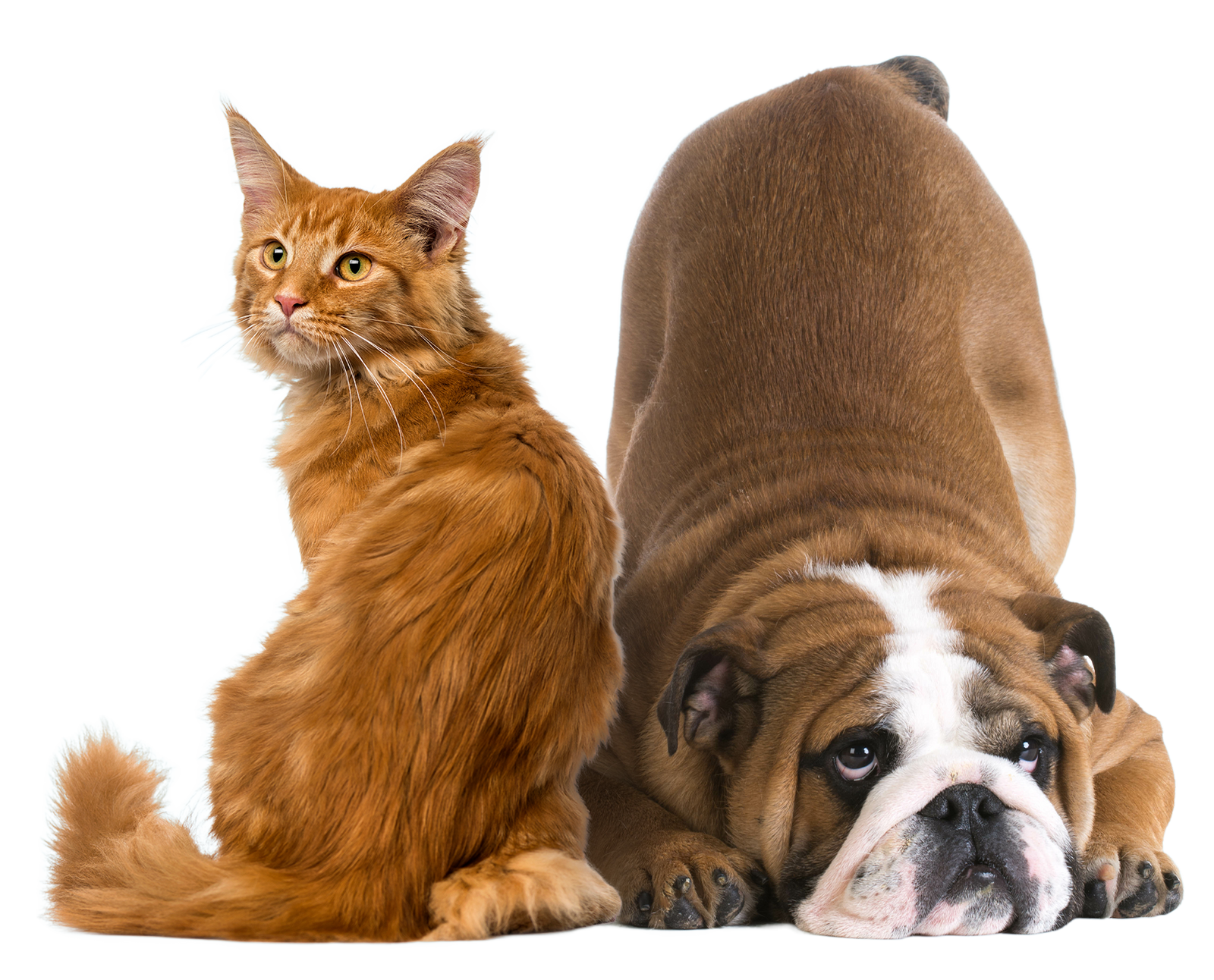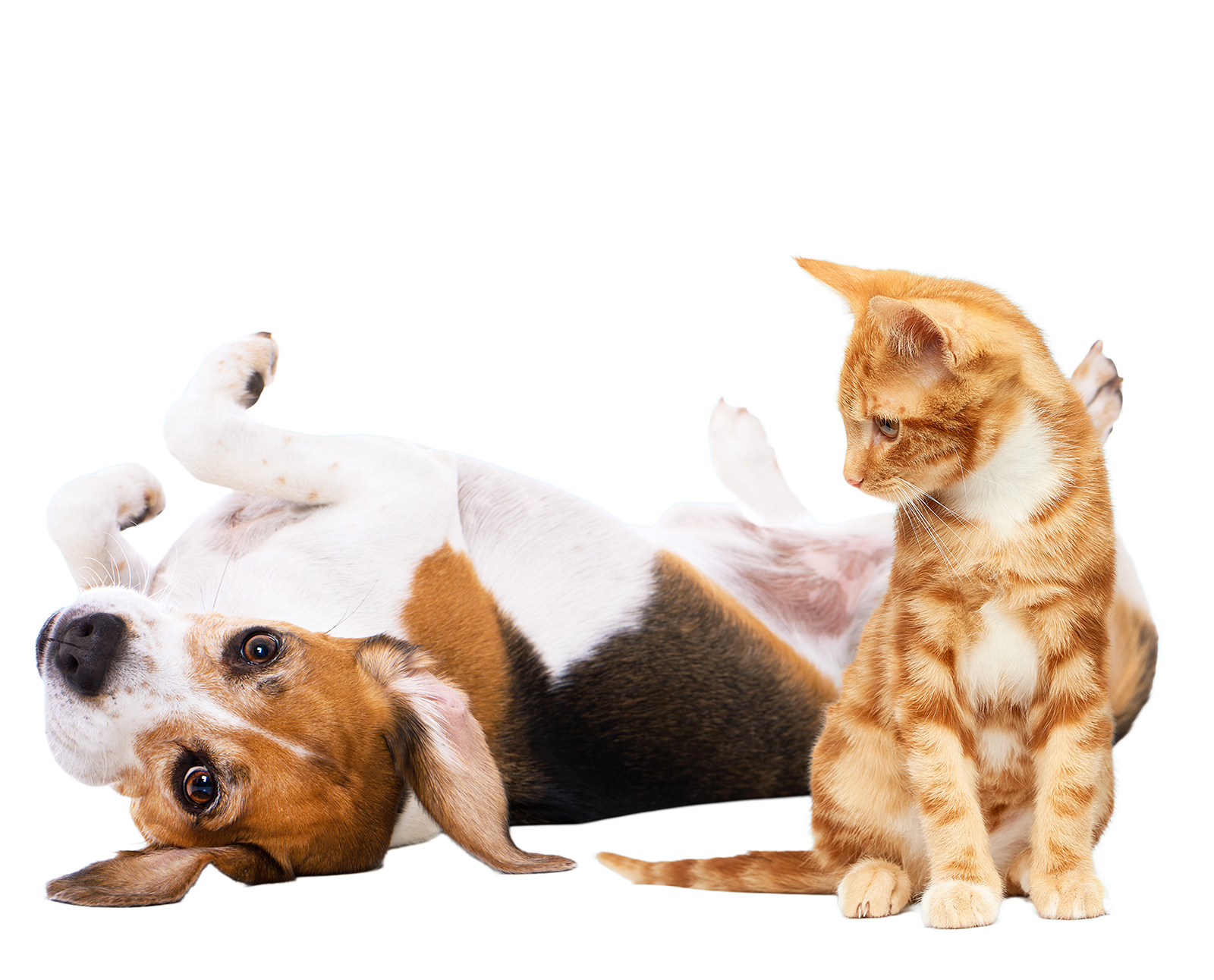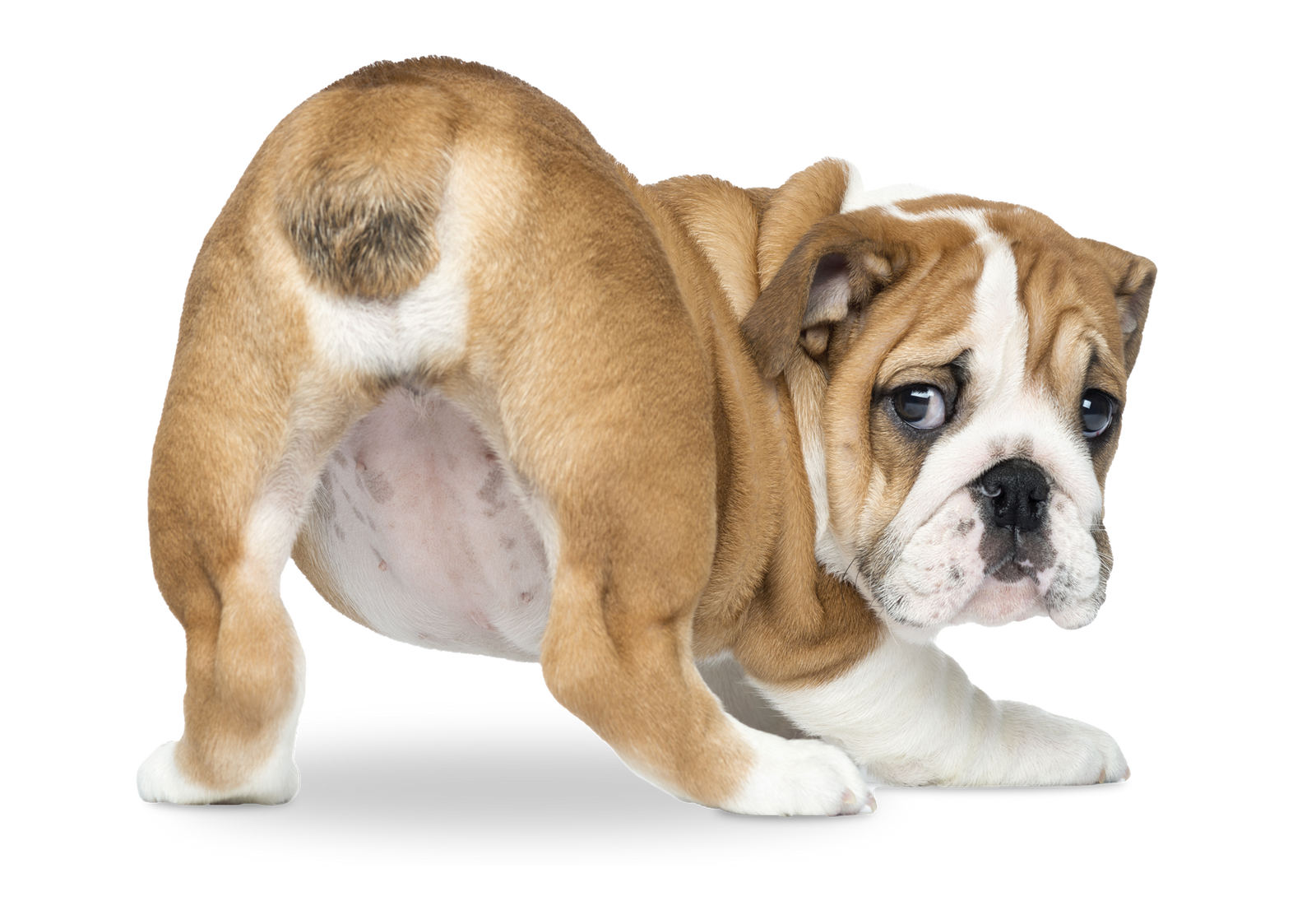How to Help Dogs Express Glands Naturally

Wondering how to help dogs express glands naturally? Taking your dog to the vet to have their anal glands expressed isn’t fun for anyone. It’s a drain on your wallet–especially for regular expressions–and there’s no shortage of discomfort involved for your furry pal. So what’s the alternative?
Veterinarians agree that it’s ideal for your dog to express their dogs on their own, as nature intended––during bowel movements! We’ll give you the tools you need to help express your dog’s gland naturally, and teach you how to relieve dogs’ anal gland discomfort at home.
Why do dog anal glands fill up?
Anal glands should empty with every bowel movement––but if stools aren’t properly formed, the anal glands can quickly become impacted.
The anal glands sit low on either side of the anal cavity at the 4 and 8 o’clock positions. They range from pea to grape size and aren’t visible from the outside but can be carefully accessed by your veterinarian or someone trained in anal gland expression.
Anal glands contain a liquid that can both identify them to other animals and mark their territory, which is why it’s meant to be released with every bowel movement.
The most common reasons for anal gland impactions in dogs are:
- Small, soft, or watery stools (e.g., diarrhea)
- Lack of exercise or a sedentary lifestyle
- Inflammation from food or environmental allergies
- Compact anatomy in smaller breeds
Compact anatomy is another risk factor common in smaller breeds like Pugs, Toy and Miniature Poodles, and Cocker Spaniels. For these smaller breeds, lifestyle and dietary changes are useful tools for helping prevent anal gland impactions.
How to help dogs express glands naturally
The best way to help dogs express anal glands naturally is by promoting firm, bulky stools. You can do this in various ways through dietary supplements and enhancements. If you’re wondering how to relieve a dog’s anal glands, start with a fiber-rich diet and encourage healthy activity to kickstart digestion.
1. Fiber supplements
Fiber supplements will be your first line of defense–and support–when addressing your dog’s impacted anal glands. Small breeds or dogs who struggle with full anal glands regularly should take fiber supplements daily. For dogs already showing signs of anal gland impaction, a vet-strength fiber supplement can bulk up the stools to support natural anal gland expression.

2. Fiber-rich ingredients
Ingredients naturally high in fiber are a must when considering how to help dogs express glands naturally. A plentiful fiber intake can help keep stools bulky and firm, increasing the odds that your dog’s anal glands will be expressed with every bowel movement. Look for a blend of soluble and insoluble fiber from ingredients like Apple, Flax Seed, Rice Bran, and Pumpkin for dogs’ anal gland health.
3. Fresh foods
Fresh foods are more likely to contain healthy microbiota to support a well-balanced gut and, by extension, improved digestion. Fresh foods are still cooked foods, but contain more ‘people’ food rather than dry, processed kibble. Examples of ingredients in a fresh food diet include cooked chicken, beef, carrots, peas, and fresh fruits like apples and blueberries. To ensure proper food handling and portion sizes, talk to your veterinarian about which foods and recipes are best for your dog’s unique needs.
4. Adequate water intake
All the dietary fiber in the world can still fall short of success if your dog isn’t drinking enough water. Clean, fresh water helps to flush roughage through the digestive tract and promote motility––meaning more productive poops and natural anal gland expression. Encourage your dog to drink about 1oz of water per pound of body weight every day.

5. Regular exercise
Activity is one of the best ways to boost digestion! Motility–the movement of food from the mouth to the anus–happens more effectively when your dog exercises regularly. That’s because when your dog is moving, so is their digestive system! Wondering how to help dogs express glands naturally? Keep them active daily with walks, indoor or outdoor play, swimming, and hiking.
Overweight dogs also struggle more with anal gland issues, so maintaining a healthy weight–through diet and exercise–is another reason to keep your pup active!
6. Manage diarrhea symptoms
Small poops and diarrhea are among the leading causes of anal gland impaction, so ensure you’re nipping these symptoms in the bud! Supplementing your dog’s diet with a fiber supplement with added probiotics can help balance a disrupted gut and bulk up your pet’s stools. If you’re wondering how to help dogs express anal glands naturally while they have diarrhea, adding this high-quality supplement can help.
How to relieve dog anal gland discomfort
Is your dog already suffering from the effects of overfull anal glands? There are a few ways to keep them comfortable until you can get an appointment with a vet for manual expression.
- Offer anal gland supplements with digestive enzymes and probiotics to support digestive comfort.
- Keep the rear end clean with hygienic wipes to help reduce skin irritation and neutralize the telltale “fishy” smell of leaky anal glands.
- Use a topical spray with anti-inflammatory ingredients like Lidocaine to target pain, itching, and discomfort.
- Try a DIY warm compress with calming Calendula essential oil and warm water applied to the affected area until the saturated towel cools.
Anal glands can be manually expressed at home–only if you have been trained by your veterinarian–or at a veterinary hospital. Falling back on manual expressions might be necessary for advanced cases of anal sac disease, but it’s generally recommended to encourage the natural emptying of the anal glands through bowel movements. Relying solely on manual expression–or having it done too frequently–can actually do more harm than good.
Leaving anal glands impacted for too long can cause unnecessary pain and discomfort for your pet––and increase the likelihood of stinky household messes from scooting and leakage. The most serious risk of anal gland impaction is an anal sac infection or abscess, so contact your vet at the first sign of impaction!





